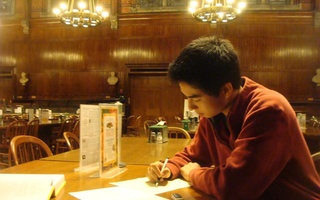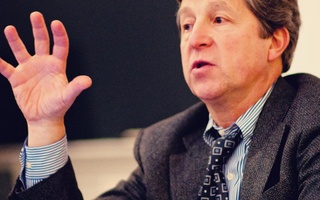A freezer malfunction at the Harvard Brain Tissue Resource Center damaged 150 brain samples, including 54 specimens that constituted a third of the largest collection of autism-affected brain tissue in the world before the accidental defrosting.
In a public statement, McLean Hospital Public Affairs and Communications Director Adriana Bobinchock explained that two alarm systems had failed, leaving employees of the hospital where the brains are stored unaware that the freezer was not working.
“A full investigation has been launched to determine what caused the freezer, as well as two alarm systems that should have been triggered by the rising temperature, to fail,” Bobinchock wrote.
Geraldine Dawson, the chief science officer for Autism Speaks, said in a statement that that organization will also conduct an investigation.
“Although this event will affect the availability of tissue for future research, we cannot yet determine the level of impact, but we are confident that we can maintain the momentum of scientific studies based on brain tissue,” Dawson wrote.
Bobinchock noted that the accidentally thawed brain samples may still contain valuable DNA information.
“However, it is unclear whether the samples will be compatible with the full-range of the needs of neuroscientists,” Bobinchock wrote.
HBTRC Director Francine M. Benes could not be reached for comment, but she told the Boston Globe that the collection's worth could not be estimated.
Etty P. Cortes, assistant director at the New York Brain Bank at Columbia University, said that it can be very difficult to estimate how quickly a brain collection can be rebuilt.
She said that the New York Brain Bank lost 4,000 samples to a similar malfunction in 2004 and is still recovering from the accident.
“[Situations like these] are not frequent, but you have to have very good equipment that is working all the time,” Cortes said. “We check the freezers every day to avoid this kind of situation.”
—Staff writer Petey E. Menz can be reached at menz@college.harvard.edu.
Read more in News
Youngest Nobel Peace Prize Winner Discusses Middle East at IOPRecommended Articles
-
 Confronting the Concussion
Confronting the Concussion -
 When and Where Not To Brain Break
When and Where Not To Brain Break -
 Annenberg Makes Its Social Space Debut
Annenberg Makes Its Social Space Debut -
Exercise, Diet Help Relieve StressA Rockefeller University scientist, speaking at a discussion hosted by the Mind/Brain/Behavior Initiative Tuesday, said that anxiety may have more negative health effects than commonly expected.
-
Students Embrace Annenberg As Nighttime HangoutSince the College extended the hours that Annenberg is open to students in mid-September, some freshmen say they have been taking advantage of the later hours.
-
 HMS Professor Studies Orphanage Impact on Brain Development
HMS Professor Studies Orphanage Impact on Brain Development













